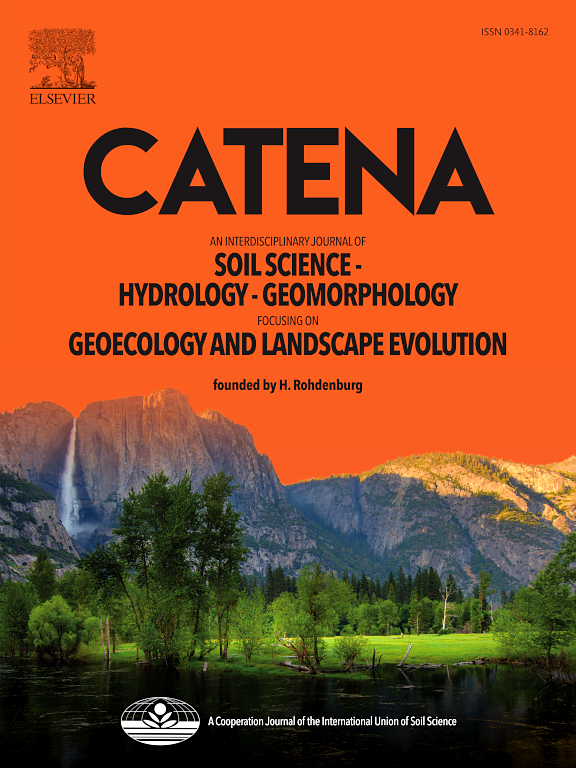Different types of Anthropocene signals recorded in Huguangyan Maar Lake over the past 450 years
IF 5.4
1区 农林科学
Q1 GEOSCIENCES, MULTIDISCIPLINARY
引用次数: 0
Abstract
Over the past few centuries, human activities have increasingly impacted global climate and ecological environments. The “Anthropocene” has been proposed to highlight the significant influence of human activities on the environment. However, prior research has focused on analyzing a single type of human activity in lake sediments. In this study, we examined the historical changes in water eutrophication, terrestrial vegetation, and heavy metal pollution in the sediments of Huguangyan Maar Lake over the past 450 years. By comparing different human activity records within the same regional and chronological framework, we found that the timing of significant impacts on lake sediments varied by activity type. Eutrophication, induced by population growth and agricultural fertilization, began around 1950 CE. Changes in vegetation owing to agricultural and forestry practices occurred around 1780, 1880, and 1980 CE. Significant enrichment of heavy metals from industrial production began around 1950 CE. We suggest that, in reconstructing the history of human activities or defining the onset of the “Anthropocene,” it is crucial to consider both the types of human activities and their spatial extent.
湖光岩玛珥湖在过去 450 年中记录到的不同类型的人类世信号
过去几个世纪以来,人类活动对全球气候和生态环境的影响与日俱增。为了强调人类活动对环境的重大影响,人们提出了 "人类世"。然而,之前的研究主要集中于分析湖泊沉积物中单一类型的人类活动。在本研究中,我们考察了过去 450 年间湖光岩玛珥湖沉积物中水体富营养化、陆地植被和重金属污染的历史变化。通过比较同一区域和年代框架内的不同人类活动记录,我们发现不同活动类型对湖泊沉积物产生重大影响的时间各不相同。人口增长和农业施肥引起的富营养化始于公元 1950 年左右。农业和林业活动导致的植被变化发生在公元 1780 年、1880 年和 1980 年前后。工业生产造成的重金属严重富集始于公元 1950 年前后。我们建议,在重建人类活动历史或定义 "人类世 "的开始时,必须考虑人类活动的类型及其空间范围。
本文章由计算机程序翻译,如有差异,请以英文原文为准。
求助全文
约1分钟内获得全文
求助全文
来源期刊

Catena
环境科学-地球科学综合
CiteScore
10.50
自引率
9.70%
发文量
816
审稿时长
54 days
期刊介绍:
Catena publishes papers describing original field and laboratory investigations and reviews on geoecology and landscape evolution with emphasis on interdisciplinary aspects of soil science, hydrology and geomorphology. It aims to disseminate new knowledge and foster better understanding of the physical environment, of evolutionary sequences that have resulted in past and current landscapes, and of the natural processes that are likely to determine the fate of our terrestrial environment.
Papers within any one of the above topics are welcome provided they are of sufficiently wide interest and relevance.
 求助内容:
求助内容: 应助结果提醒方式:
应助结果提醒方式:


